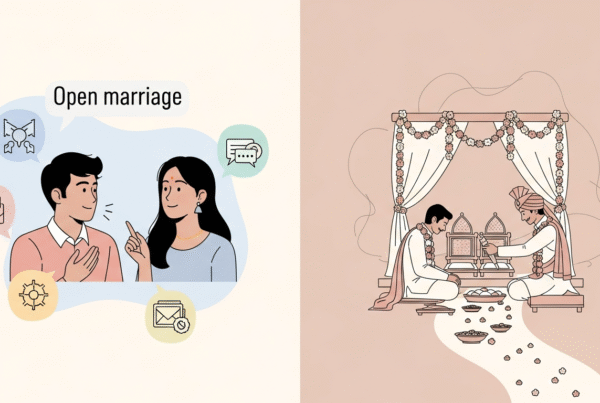When people ask what I do and I say, “I write about k¡nk, s€x t0¥s, d@ting and rel@ti0nships,” the room usually goes very still. Then someone cracks a joke they think is clever. Then someone else leans in with a question they’d never ask in any other situation. Apparently, saying the word “vib®@t0r” in public is still considered an act of rebellion. Most of my actual job involves staring at a screen in sweatpants, trying to make sense of language, shame and desire. Hardly scandalous, but people love a fantasy.
The first time I published a piece about s€x t0¥s, I was 21 and terrified. I rewrote the opening line more times than I’ll admit and hovered over the publish button like it might set off an alarm somewhere. The reaction was immediate. Creeps flooded my DMs. People sent me unsolicited stories and graphic overshares. Some decided I must be hypers€xu@l or available. Others treated me like a punchline. A few just stopped speaking to me altogether. That’s the cost of stepping into conversations most people still pretend don’t exist.
Over time, fear turned into something else. As a bis€xu@l person, I had spent years watching conversations about desire, pleasure and intimacy happen as if people like me weren’t in the room. Writing dragged me into the centre of those conversations and forced me to build a language for them. It made me confront the shame I’d inherited and taught me how to name it when I saw it. Once you name something, it loses its power.

I owe part of that journey to my ex. He was curious, patient and open to exploring without ego. That kind of attitude isn’t just refreshing, it changes the entire dynamic. Pleasure becomes something shared, not performed. Curiosity becomes a language of its own. That lesson is stitched into everything I write.
The job attracts all kinds of assumptions. People think I’m a therapist. They message me for detailed advice about their relationships. They project fantasies onto me based solely on a headline. The s€xu@lis@ti0n never stops. At the same time, this work has built some of the most important relationships of my life. I’ve had conversations with friends that would never have happened otherwise. My sister and I have spoken honestly about pleasure without awkwardness. Some of my closest friendships started with a shared fascination for the politics of desire.
The work goes far beyond vib®@t0rs and lüb€. It is about consent and power. It is about language and silence. It is about the ways shame clings to our bodies and how we learn to shake it off. It is about trust, curiosity, vulnerability and the messy work of building intimacy that does not follow a script. The t0¥s are an entry point. The real story is everything that happens around them.
S€lf-ple@sure is part of that story. It is how you map out what your body enjoys, what it rejects, what it craves and what it needs to feel safe. It is how you build a vocabulary for your own desire so that intimacy is not guesswork. When you understand yourself, communication stops being a chore and starts being collaboration.
Talking to new partners about t0¥s does not require a dramatic speech. You do not need to announce it like a confession. A simple “I use this when I’m alone, want to try it together?” is usually enough. If someone mocks you or gets defensive, that is useful information. The people worth exploring with will respond with curiosity and care. They will ask questions, listen and want to make the experience better with you instead of competing with a piece of silicone.
 There is another side to this work that people rarely see. The creeps do not stop. The unsolicited confessions do not stop. People fetishise your job and make assumptions about your personal life that have nothing to do with reality. It is tiring. And it makes me deeply respect the people who have been doing this longer. The s€x educators, therapists, writers and activists who keep pushing these conversations forward even when the world tries to reduce them to stereotypes. Their work is difficult, unglamorous and absolutely necessary.
There is another side to this work that people rarely see. The creeps do not stop. The unsolicited confessions do not stop. People fetishise your job and make assumptions about your personal life that have nothing to do with reality. It is tiring. And it makes me deeply respect the people who have been doing this longer. The s€x educators, therapists, writers and activists who keep pushing these conversations forward even when the world tries to reduce them to stereotypes. Their work is difficult, unglamorous and absolutely necessary.
Now, at 25, I still get the DMs and the raised eyebrows. People still build entire narratives about me based on a single sentence. None of that matters anymore. This work is complicated, hilarious, deeply human and often ridiculous. It has connected me to people I love, taught me more about myself than I ever expected, and created conversations that might not have happened otherwise.
If that means I am the person explaining the difference between a bullet and a rabbit in the middle of a party, fine. Someone has to do it, and I am already halfway through the sentence.





